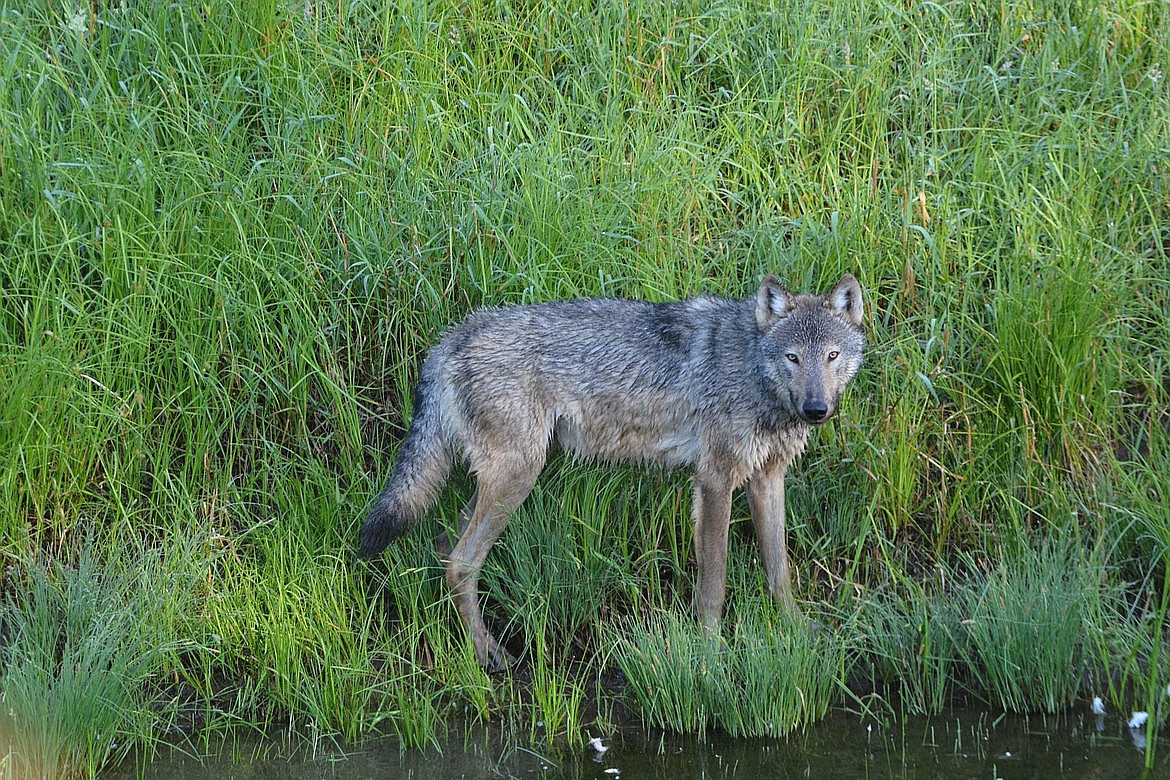'They have to be managed'
COEUR d’ALENE — When Brad Corkill talks about a camper in Ovando, Mont., recently killed by a grizzly bear, he wants people to understand something.
“This was not in the wilderness, not in some high mountain camp,” he said.
It was in a small, western Montana town, frequented by visitors, a place where fishing and hiking are popular and where Highway 200 runs right through it.
“The point that needs to be made, populations are increasing and habitat is shrinking,” Corkill said. “These kind of encounters are going to become more and more frequent.”
Then, he adds, “It’s going to be the same thing with wolves.”
Corkill served eight years on the Idaho Fish and Game Commission and recently retired.
But even leaving that post this year, he still worries about what could happen to the state’s wolf population with the passage of Senate Bill 1211, which increases the season on wolves and the ways they can be killed.
Corkill, who lives in Rose Lake, said in a previous interview with The Press he didn’t think “that the parties involved in this gave it the time and the consideration that it so richly deserves.
“I feel that it’s possible the consequences of this bill could be very counterproductive to its stated purpose,” he said.
Corkill fears it will lead to lawsuits that may wind up before a judge, who may issue a moratorium on Idaho’s wolf management. And that could lead to a dramatic increase in the number of wolves, by several hundred, in a few years, he said.
It's speculation, he said, but a legitimate concern.
“It’s going to happen if these animals are not managed,” Corkill said. “They have to be managed. The danger now is that we may lose our ability to manage these animals if they’re relisted.”
It's possible.
Last month, 10 groups filed a notice of intent to sue the state of Idaho to challenge the state’s new wolf-hunting laws.
They argue the state’s authorization of an unlimited season and expanded methods of killing wolves is likely to result in incidental trapping and snaring of federally protected lynxes and grizzly bears, violating the Endangered Species Act.
“The Idaho Legislature’s latest assault on wolves introduces a new killing paradigm not seen since the 19th century,” said Ben Scrimshaw, an Earthjustice attorney.
Idaho Gov. Brad Little signed Senate Bill 1211 in May. The goal is to reduce the state’s wolf count by about 90% — from 1,500 to about 150, in order to reduce attacks on livestock and to boost deer and elk herds.
And it will do that in a few ways, including year-round hunting. Another is providing money for state officials to hire contractors to kill wolves. The Associated Press reported it also expands hunting methods to include hunting, trapping and snaring an unlimited number of wolves on a single hunting tag, using night-vision equipment, chasing down wolves on snowmobiles and ATVs and shooting them from helicopters. Also under the new law, newborn pups can be killed if they are found on private land.
Chip Corsi, Idaho Department of Fish and Game Region One supervisor, said they will do their best to work with SB 1211.
“Laws gets passed, we work with the law and try to make it successful and that’s what we’ve been working on,” he said.
Corsi agreed with Corkill that should a moratorium be placed on the state’s wolf management, it could cause their population to rise.
“Certainly, that would be a concern from a big game management standpoint and depredation on livelihood standpoint,” he said.
He said he’s not surprised legal action opposing Senate Bill 1211 is being taken.
“Anytime things change in a big way with wolves, there are organizations out there that will file lawsuits,” he said.
Corsi said Idaho has done well managing wolves and their population is healthy.
“And we expect they will stay at recovery levels,” he said.
SB 1211 was opposed by many, including Corkill and the Idaho Fish and Game Commission.
He questions whether it will even be effective and said wolves are difficult to track, to find, and hard to kill. He said the population will never get as low as 150.
“It won’t happen,” he said.
Corkill said 47,000 wolf tags are sold in Idaho every year, but only about 500 are used. And of those 500, five individuals are responsible for more than 50 of them.
He said to keep the wolf population static, about a third of them need to die each year. For the past two years, that’s what has happened, and the wolf population has been maintained at about 1,500.
He said when SB 1211 was signed into law, he received “not nice” emails from around the world accusing him of being part of a plan to massacre wolves.
When it went into effect July 1, one email said, “So the slaughter begins. I hope you’re happy."
“Nothing happened on July 1,” Corkill said.
And he hopes nothing does happen. He would prefer to see wolves continue to be managed as they have been.
If there is a moratorium on Idaho's wolf management plan, and the population rises substantially, the effects could be long-lasting.
"We will no longer know big game hunting as we have known it in the past," Corkill said.
Rep. Ron Mendive said Idaho’s wolf problem “is severe."
“Something needed to be done and we had to move toward,” he said.
“There’s always the risk of lawsuits, and we can’t let that paralyze us, either,” Mendive added. "We have to do what's right."
He said the wolf numbers are high and “the reality is, we need to manage them a little more effectively.”
Mendive, an elk hunter, agreed with Corkill's assessment that wolves are hard targets.
“It’s kind of like trying to sneak up on your dog,” he said.
The expanded hunting opportunities should help reduce the population, he said, but there Idaho will continue to have a healthy wolf population.
“They’re here to stay,” Mendive said.



